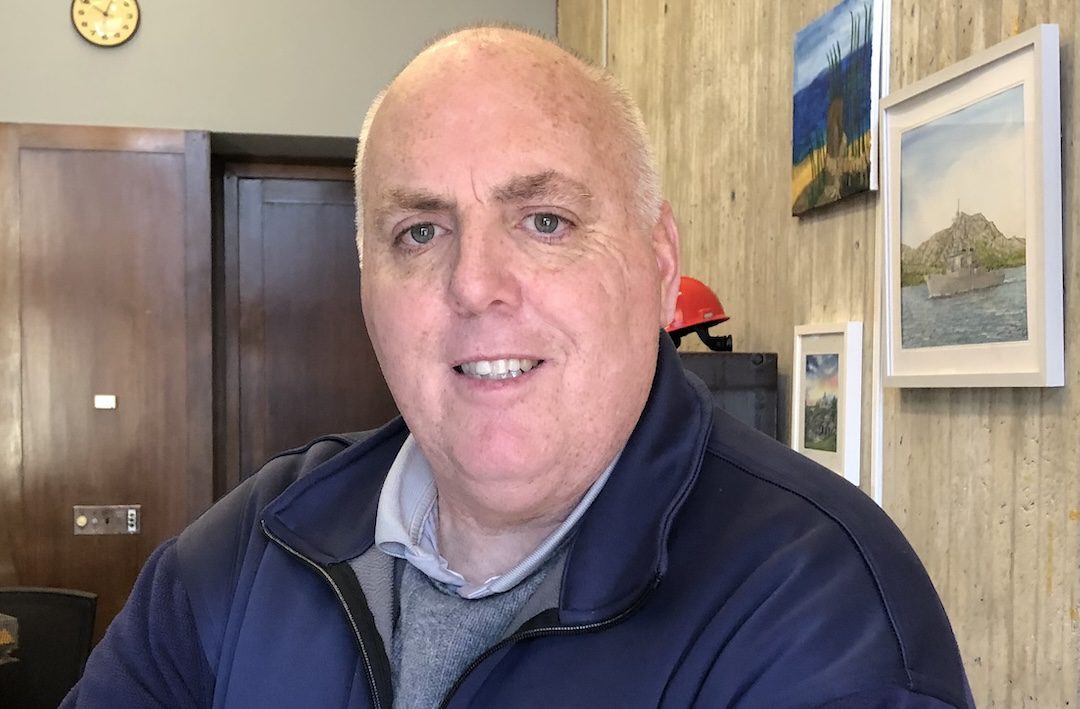
Ed Flynn Talks to El Mundo Boston about tumultuous last two years
by Brian Wright O’Connor
It’s Friday afternoon before Christmas and a lone figure scurries around the 5th floor landing of Boston City Hall into the reception area of the Boston City Council.
Edward M. Flynn, the only councilor in the office, flashes a big smile as he enters and greets a visitor. He tells the receptionist to go home and invites an aide to sit in on a conversation in his office about his expiring two years as Boston City Council president.
Flynn, 54, settles into a couch and looks out the window toward City Hall Plaza, where a few shoppers cross the windswept bricks.
Elected in November to his fourth term, Flynn’s sunny disposition was tested over the last two years by acrid policy disputes among his colleagues, councilors running into legal trouble and differences rising to such levels that new guidelines were needed to curb bullying in the chambers.
But Flynn, to cite the old song, prefers to accentuate the positive.
“The highlight of the council presidency was the extraordinary opportunity to work with wonderful council colleagues, central staff and the city administration to improve the lives of residents across the city and to provide some leadership on the council body as well,” he said.
“And I hope that by providing positive leadership, I made Boston a better place.”
The South Boston native and son of former Mayor Raymond L. Flynn was first elected to the council from District 2 in 2017 to represent South Boston, the South End and Chinatown.
Making Boston a more welcoming city to immigrant families was a priority of his term as council president. Flynn, who hired five Asian women, all from immigrant families, to work in his office, cites constituent service work, immigrant rights advocacy and more expansive language services from the Boston Housing Authority and the Boston Planning and Development Agency among his most significant accomplishments.
“I intentionally wanted to bring on my staff women of color who reflected the city and who could provide me with a different perspective to make me a better councilor,” says Flynn.
The flood of immigrants into Boston — with record numbers crossing the southern border daily and finding their way to the city – has strained city resources. While some elected officials demand troops to stop the flow, Flynn focuses on serving those who pass through the golden door.
“Boston is an immigrant city. We respect immigrants and the important contributions and sacrifices they have made to our city and to our country,” he says.
“Ensuring these families have access to not only public education but to various social services as well is important. When you educate the child, you also have to educate the family and that means providing the family with food access, with the ability to get health care and social services.”
The U.S. Navy veteran, one of four white councilors on the 13-member body, was elected council president as his former colleague Michelle Wu began her milestone first term as Boston mayor and the first woman and the first Asian-American elected mayor of the city.
Flynn found himself moderating disputes over public safety funding, with some councilors wary of accepting millions of dollars in federal counter-terrorism funds and a number of them voting to cut the police budget by $30 million.
But the council presidency seat grew especially hot when councilors Ricardo Arroyo and Kendra Lara found themselves facing legal troubles.
Flynn removed Arroyo from the politically sensitive position of chairing the council’s redistricting committee and was outspoken about elected officials needing to hew to higher standards.
Tensions over his words and actions boiled over in council sessions where F-bombs went flying around and public gallery visitors turned on each other.
“We had a lot of ethical challenges facing many of my colleagues on the city council and it wasn’t easy to address those publicly,” he says.
“But as the city council president, I can’t pick and choose what issues I want to work on and which issues I don’t want to work on. I have to address what’s in front of me and I have to provide leadership to the body. And sometimes providing leadership means people may disagree with you and may not like you for it and that hurts. But I try to do what I think is in the best interests of the residents or Boston.”
Flynn has frequently waved away the possibility of running for mayor one day but openly talks about working some day for the Veterans Administration, drawing on his 25 years in the Naval Reserves and first-hand knowledge of the challenges facing those who have worn the uniform of the armed forces.
In the meantime, Flynn, married and the father of two, proudly points to the fact that he hasn’t had a vacation in six years, that he works every day of the week – including Saturdays and Sundays and the Fridays before Christmas – and that he understands the sacrifices, some political, some personal, the job requires.
He recalls his father announcing the integration of public housing in South Boston and Charlestown just a few months before one of his re-election battles.
“He lost one neighborhood in the city out of 22 – and that was his home ward in South Boston. So I know how important it is to bring this city together,” says Flynn.
“I understand how critical every decision you make is and the impact it has on people of color, on immigrants, on people without a voice in government.”







